 한인여선교회 회원들께 드립니다 한인여선교회 회원들께 드립니다
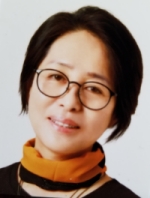
한인여선교회 회원들께 드립니다.
“하늘엔 영광, 땅에는 평화” 이 땅에 오신 주님의 이름으로 인사를 드립니다.
이제 2020년도 며칠 남지 않았습니다. 올해는 온 인류가 전혀 예상하지 못했던 코로나바이러스로 인해서 평범했던 일상들이 멈추었고, 우리는 새로운 일상(New Normal)에 적응하며 살고 있습니다.
한인여선교회 전국연합회 산하 9개 지역연합회도 COVID-19으로 인해 프로그램과 사역을 중단하였습니다. 그러나 한인여선교회 회원 한 분이 “우리 여선교회가 세상이 어렵다고 선교사역을 멈추는 것은 말이 안 된다. 마스크를 만들어서 이웃을 돕자”라고 건의를 하셨습니다. 이것이 계기가 되어 마치 목초에 불이 붙듯이 전국 9개 지역연합회의 여선교회 회원들이 어른 & 어린이용 마스크를 만들기 시작하였습니다. 이렇게 만들어진 마스크와 헌금으로 구입한 마스크 수만 장이 전국연합회로 전해져서 병원, 빈민 가정, 홈레스, 교도소, 빈민 어린이 방과 후 학교, 그리고 미국 원주민 호피와 나바호 부족에게 전달되었습니다.
또한 지역연합회에서도 만든 마스크를 가지고 지역의 어려운 사람들, 이민자, 홈리스를 찾아가서 전달하였습니다. 또한 전국지도자훈련의 일환으로 역사상 처음으로 줌을 통해서 ‘환경 & 인종차별 세미나’를 지난 11월에 실시하였습니다. ‘숨과 쉼으로 평화의 세계를 만들자’라는 주제 아래 성경 공부, 미국 원주민의 과거 현재 미래, 기후 위기, 인종차별에 대한 세미나를 실시한 것입니다. 참가자는 미국 전역에서 140명의 한인여선교회 회원들과 몇 분의 목회자들이었습니다. 세미나의 중심 내용은 우리들의 삶을 억압해서 숨을 못 쉬게 하는 사회적인 문제들에 대해 들여다보고 기독교인의 양심과 책임으로 어떻게 실천할 것인지를 생각해 보았습니다. 소그룹의 모임을 통해서 선정된 실천사항들이 2021년의 한인여선교회 전국연합회의 선교사역으로 반영될 예정입니다.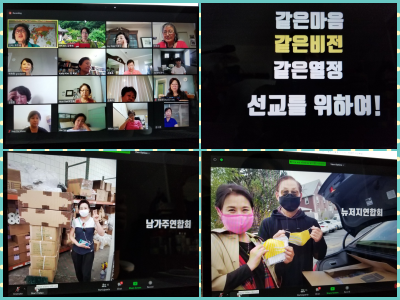
2021년에 주요사역으로는 국내에선 줌을 이용하여 지도자 훈련으로 영성과 다양한 사회이슈에 관한 세미나, 미국 원주민 사역, 교도소 문서선교를 할 예정이며, 해외 사역으로는 몽골, 중앙아시아, 블라디보스토크 여선교회 연합회 회원들을 위한 지도자훈련을 줌으로 실시하며, 현지 연합회의 선교사역을 후원할 예정입니다.
여-선-교-회는 어려운 시대에서도 평신도 여자들이 모여서 행동하는 믿음과 소망과 사랑을 가지고 시대와 환경과 문화의 장벽을 넘어서 선교의 역사를 써왔습니다. 그러므로 인류를 위협하는 코로나바이러스도 여선교회의 선교사역을 중단시킬 수는 없습니다. 그 이유는 선교의 주체자는 하나님이시고 한인여선교회는 선교사역에 초대를 받았기 때문입니다.
12월에 한인여선교회 전국연합회는 연합감리교회 오클라호마 인디언 미션어리 컨퍼런스에 있는 39개 부족의 미국 원주민들의 어린이들을 위한 사역을 하기로 결정하였습니다. COVID-19으로 인해 오클라호마 원주민들은 큰 경제적 어려움에 직면해있고, 기후변화로 추위가 몰려와 고통당하는 어린이들을 위해 장갑, 모자, 목도리, 양말, 마스크 보내기와 학교에 갈 때 필요한 휴대용 손 세정제, 물병을 지원하기로 했습니다.
“ 지극히 작은 자 하나에게 한 것이 곧 내게 한 것이니라” (마태복음 25:45)는 주님의 말씀을 기억하며 함께 사랑을 나누기 원합니다. 그리고 전국연합회 사역에 참여해 주신 한인여선교회 회원들께 진심으로 감사를 드립니다.
<오클라호마 원주민 어린이 사역에 참여하는 방법>
● 모집 용품 - 어린이용 장갑, 모자, 목도리, 양말, 마스크, 휴대용 손 세정제, 물병 ● 보내는 곳 – 한인여선교회 지역연합회 회장 (여러분이 사는 지역)
(뉴욕: 한혜윤, 뉴저지: 김경미, 뉴잉글랜드: 김지영, 델라웨어-메릴랜드: 임경미, 서부 오하이오: 임윤선, 북일리노이: 김정자, 북조지아:피경옥, 북가주:최정희, 남가주: 박옥란)
● 어린이용품을 보내실 때 김명래 총무에게 연락해주시면 지역연합회 연락처를 알려드리겠습니다. (김명래 총무: 914-473-7401, mrkim81@gmail.com)
● Check로 보내기 원하면 Pay to NNKUMW, Check memo에 ‘오클라호마 원주민 어린이 사역’이라고 써주세요. (보낼 곳: Grace Song, Henlopen Ct, Newark, DE 19711)
● 마감일: 2021년 1월 30일
(글: 김명래 총무, 한인여선교회 전국연합회)

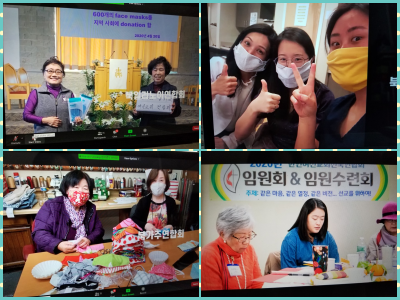
Letter from Myungrae Kim Lee, Executive Director of NNKUMw
To our beloved KUMW Members,
“Glory in the highest, peace on earth!” Greetings in the name of our Lord.
2020 is now just a few days away. This year, the ordinary life that we’ve had has all stopped due to the unexpected coronavirus, as we adjust to the “new normal.”
Our 9 conference networks under NNKUMw had paused all programs and ministries due to COVID-19, until a NNKUMw member said, “We must not stop our missions because of difficulties. Let's make masks and help our neighbors." This became a spark across all nine networks to start making masks for adults and children. Tens of thousands of these hand-made masks plus purchased masks were delivered to hospitals, poor families, the homeless, prisons, after-school programs in poor communities, and the Native American Hopi and Navajo tribes. Local networks also made visits to the local people, immigrants, and homeless within the area to deliver the masks. Also, as part of the national leadership training, the 'Environment & Racism Seminar' was held last November via Zoom for the first time in our history. The seminar was held with the theme of "Creating a peaceful world through breath and rest," discussing and holding Bible studies and seminars on topics such as: the Native Americans’ Past, Present & Future, Climate issues, and Racism. 140 people participated, comprising of NNKUMw members and several pastors. The core content of the seminar was about looking into the social issues that are oppressing our lives and making us unable to breathe, and brainstorming on ways to practice and apply our Christian conscience and responsibility as believers in resolving those issues. The practical applications selected through small group discussions will be reflected in NNKUMw’s missions in 2021.
Our main ministries planned for 2021 include: (Domestic) spiritual growth and social issues seminars via zoom for leadership training, Native American tribe ministries and prison ministries, as well as (international) zoom leadership training for UMW members in Mongolia, Central Asia, and Vladivostok, and supporting their local network missions. 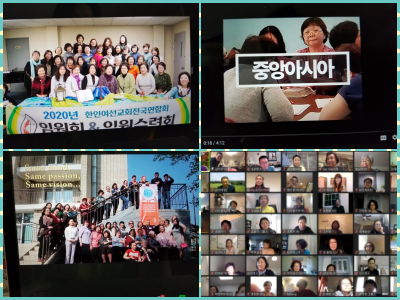
UMW has been writing a history of missions through actionable faith, hope, and love as united laywomen, crossing beyond environmental and cultural barriers even in difficult times. Thus, even the threatening coronavirus cannot stop our KUMW’s mission work, because: our God Himself is the agent of mission, and He has invited KUMW to His ministries.
In December, NNKUMw decided to start a ministry for children of 29 Native American tribes in the UMC Oklahoma Indian Missionary Conference. The Oklahoma natives are facing huge economic difficulties due to COVID-19; and to help out the children suffering from the cold due to climate change, we have decided to provide gloves, hats, scarves, socks, masks, hand sanitizers and water bottles.
Remembering the Lord’s saying, “Whatever you do for one of the least of men, is what you do to me." (Matthew 25:45), we want to share the love. And I express my sincere thanks to the KUMW members who have participated in NNKUMw’s ministries.
<How to participate in the Oklahoma Native American Children Ministry>
• Supplies in need: children gloves, hats, mufflers, socks, masks, small hand sanitizers, water bottles
• Where to send the supplies – to your respective network leaders (New York Conference Network: Hyeyoon Han, Greater New Jersey Conference Network: Kyungmee Kim, New England Conference Network: Jin Kim, Delaware-Maryland Conference Network: Kyungmee Im, W. Ohio conference Network: Yun sun Noll, N. Illinois Network: Jung ja Kim, N.Georgia Conference Network: Kyung Ok Pi, Cal-Nevada Conference Network: Mickey Choi, Cal-Pacific Conference Network: Grace Okran Park)
• When you send in the supplies, please contact Executive Director Myungrae Lee to retrieve your local network contact info (Myrungrae Lee: 914-473-7401, mrkim81@gmail.com).
• To send checks: Pay to NNKUMw, and write on the memo “Oklahoma Native American Children Ministry.” (Send to: Grace Song, Henlopen Ct, Newark, DE 19711).
• Deadline: January 30, 2021.
(Written by Myungrae Kim Lee, Executive Director of NNKUMw)
|
 우리는 왜 원주민과의 선교에 참여해야 하나 우리는 왜 원주민과의 선교에 참여해야 하나
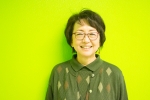 우리는 왜 미 원주민과의 선교에 참여해야 하나? 우리는 왜 미 원주민과의 선교에 참여해야 하나?
(미 원주민과 연합감리교회 결의안 #3321 참조)
역사적/신학적 근거
1823년에 미 연방대법원은 대법관 Marshall 아래 기독교의 ‘발견의 교리’(Doctrine of Discovery, 1452)를 법으로 채택했다(Johnson 대 McIntosh). 유럽인들이 아메리카에 도착한 바로 후 미 원주민 부족의 인구 중 10분의 1이 살해당했다. 정부와 종교 단체들은 의도적으로 원주민들의 전통문화와 믿음의 체계들을 와해시켰다. 원주민들을 주류사회에 동화시키기 위해 원주민들은 어려서부터 기숙학교 (Boarding School)로 강제로 보내졌는데, 이것은 감리교단들을 포함한 많은 종교 단체들에 의해 수행되었다. ‘발견의 교리’ (Doctrine of Discovery)는 적대적 분위기와 집단 학살을 합리화시켰다. 집단 학살은 탐욕의 도구였고 두려움에 대한 반응이었다. 토착민들을 말살시키려는 시도가 행해지는 동안, 그들의 전통문화, 의례, 그리고 언어들은 집단 학살 행위의 제물이 될 수밖에 없었다. 연합감리교인들이 주목하고 인정해야 할 많은 역사적 사실 중 한 사건은 1864년에 일어난 샌드 크릭(Sand Creek) 대학살이다. 이 사건은 ‘발견의 교리’ (Doctrine of Discovery)에 영향을 받아 일어난 폭거이고 대부분 여성과 아이들 약 200명이 학살 당했다. 이 샌드 크릭(Sand Creek)습격은 감리교 설교자였던 존 치빙톤(John Chivington) 대령의 지휘 아래 이루어졌다.
회개, 화해, 그리고 치유를 위한 미 원주민과의 선교
미 원주민들은 미국에서 사회경제적으로 가장 가난한 소수자 집단이다. 연합감리교회의 중요한 특별 주일헌금 중 하나인 미 원주민 선교주일 특별헌금은 원주민들의 지도력을 개발 할 수 있는 하나의 길을 열어 주고 있다. 그들의 경제 상황은 너무나 참혹한데, 일부 인디언 보호구역의 실업률(80-90퍼센트에 이르는 곳들도 있다)은 전국 평균을 훨씬 초과한다. 2012 총회에서 연합감리교회는 그들의 역사적 슬픔과 상처의 치유를 위해 함께 일할 것을 서약하고 다음과 같은 조치들을 취할 것을 약속했다.
이 조례는 모든 연회와 회중들이 다음과 같은 회개의 태도를 담은 행위들을 이행할 것을 촉구한다:
1. 연합감리교회는미 원주민이 살고 있는 지역에 연회, 지방 차원에서 여러 면으로 필요한 지원을 하는 선교 사업을 진행하고 특별 주일헌금에 적극 지원하도록 한다.
2. 문화적으로 민감한 배움의 환경을 제공함으로써 평신도와 목회자들을 미 원주민에 대해 훈련 할 수 있는 교육의 기회를 제공한다.
3. 연합감리교회는 교회의 현재와 미래의 새 지도자들을 개발하기 위한 노력의 일환으로서 미 원주민 지도력 개발을 지원한다. 여기에는 멘토 프로그램, 동료 지원 조직, 미 원주민 공동체에 새 지도자들을 세울 수 있는 전통적이고 역사적인 방법들이 포함된다 .
4. 교회가 토지나 자산을 소유하고 있다면, 그 토지나 자산의 일부를 그 지역의 토착민 부족(들)에게 돌려줄 것을 우선적으로 고려한다.
(글: 이성옥 부국장, 미국 여선교회 본부)

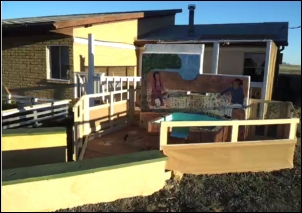
Why Should We Participate in Native Americans Ministries?
(Refer to resolution #3321 of the United Methodist Church with Native Americans)
Historical/Theological Basis
In 1823, the Supreme Court of the United States adopted the Christian Doctrine of Discovery (Doctrine of Discovery, 1452) as law under the Supreme Court Justice Marshall (Johnson v. McIntosh). One-tenth of the population of Native Americans was killed shortly after the Europeans arrived in the Americas. The government and religious groups deliberately destroyed the traditional culture and belief systems of the natives. In order to assimilate the Native Americans to the mainstream society, they were forcibly sent to boarding schools at a young age, which were carried out by many religious groups, including the Methodist Church. The "Doctrine of Discovery" rationalized the hostile atmosphere towards them and even genocide. Group massacre was a tool of greed, as well as a response to fear. While attempts were being made to exterminate indigenous people, their traditional cultures, rituals, and languages were forced to be sacrifices of genocide. One of many historical facts to be noted and acknowledged by the United Methodist Church was the Sand Creek Massacre in 1864. The incident was an attack triggered by the "Doctrine of Discovery,” which killed nearly 200 people, mostly women and children. The Sand Creek Massacre was conducted under the command of Colonel John Chivington, a Methodist preacher.
Native American Ministries for Repentance, Reconciliation, and Healing
Native Americans are the socioeconomically poorest minority group in the United States. Being one of the most important special Sunday offerings of UMC, the Native American Ministries Sunday offering has paved the way to develop leadership for the Native Americans. Their economic conditions are devastating, with unemployment in some Indian reservations well above the national average (some places as high as 80 to 90 percent). At the 2012 General Conference, UMC pledged to work together to heal their historical griefs and wounds and promised to take the following steps:
The Trail of Repentance and Healing resolution calls every conference, and every local congregation of The United Methodist Church to implement specific actions to demonstrate a genuine attitude of repentance such as:
1) host conference-level and state-level ministries to provide necessary support for the areas where Native Americans reside and actively support special Sunday offerings.
2) encourage and resource the education and training of indigenous leadership including laity and pastors, by providing culturally sensitive learning environments,
3) wherever the church is holding land and/or property in trust, consider transferring a portion of that land and/or property or its income to indigenous persons’ projects, and
4) whenever a conference entity is closing a charge or holds excess land, consider transferring any land and property to an indigenous community.
(Written by Sung- ok Lee, Connectional Officer, United Methodist Women)
|
 뉴잉글랜드 연회 한인여선교회연합회 선교학교 뉴잉글랜드 연회 한인여선교회연합회 선교학교
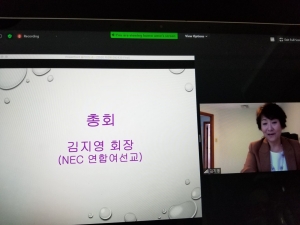 2020 선교학교(Mission u)를 참석하면서 2020 선교학교(Mission u)를 참석하면서
날씨 좋은 맑은 토요일, ZOOM 을 통해 선교학교에 참석했다. 예배를 여는 찬송 – 선한 능력으로 – 잔잔히 따라 부르면서 선한 힘이 우리를 감싸고, 고요함과 평온이 모든 이들에게 번져 나가길 기도하는 마음으로 시작했다.
“하나님 나라의 씨를 뿌리는 여성들” 이란 제목으로 김명래 총무님으로부터 어떻게 은둔국 한국 여성들에게 복음이 전해졌는지 그 역사를 들으면서 여선교회 회원으로서의 자부심과 함께 믿음의 선배들을 본받아 씨 뿌리는 거룩한 농부의 사명으로 도전받았다.
평온의 기도 – Reinhold Niebuhr
하나님,
바꿀 수 없는 것을 받아들이는 평온과
바꿀 수 있는 것을 바꾸는 용기를
그리고 그 차이를 분별하는 지혜를 주옵소서.
이 기도에 우리가 다룰 주제; 평온, 받아들임, 용기, 지혜가 다 들어 있는 것 같다. 목사님 말씀과 소그룹 나눔을 통해 느낀 점을 세 가지로 요약해 보았다.
1. 소그룹을 통해 서로 불안하고 힘들어하고 있음을 나누면서, 나 혼자만 힘든 게 아니라 같이 힘드니까 서로 동지애를 느꼈다. 그동안 불안에서 벗어나려고 발버둥 치고, 평온해지려고만 노력했는데.. 불안해도 괜찮다는 목사님 말씀에 큰 위로를 받았다.
2. 하나님의 영역과 나의 영역을 분별하는 지혜를 간절히 구했다. 하나님의 영역에 내가 침범하여 바꿀 수도 없는 일에 에너지를 소모하는 것이 아니라, 바꿀 수 없는 것은 담담하게 받아들이고, 내가 할 수 있는 영역은 노력해서 바꾸어 나가는 것이 바로 하나님이 우리에게 바라는 모습일 것 같다.
3. 불안할 때 나의 불안을 감추기 위해 가면을 쓰기도 하고 혹은 내가 초라하게 느껴져서 나를 아주 작게 과소평가하기도 한다. 이제는 가식적인 나를 벗어 버리고 양파 껍질을 벗기듯이 한 겹, 두 겹 벗어서 내 모습 그대로 드러낼 수 있는 용기 있는 삶을 살기를 기도했다.
시작할 땐 이렇게 좋은 날씨에 또 컴퓨터 앞에 앉아 있을 생각을 하니 약간 밑지는 기분이었는데, 마치면서 참 귀한 지혜를 얻고 귀한 사귐으로 힘을 얻는 시간이어서 감사했다. 이 불안한 세상에 바이러스가 판을 치는 것이 아니라, 주님 주시는 평온이 온 세계에 번져 나가서 그리스도-판데믹 (Christ Pandemic)의 시간이 되길 꿈꿔본다.
(글: 장은임 집사, 뉴잉글랜드 연회 한인여선교회연합회, 버몬트 한인연합감리교회)

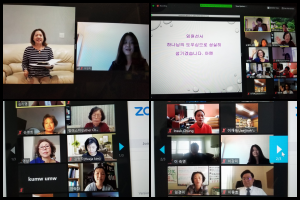
Attending the 2020 Mission u
On a bright, sunny Saturday, I attended the Mission u via Zoom. I started off with a prayerful heart softly singing the opening praise “Good Powers,” praying for God’s good powers to surround and spread among all of us. Listening to Executive Director MyungRae Kim Lee’s lecture, “Women Sowing the Seeds of God's kingdom," about the history of how the gospel was delivered to the women in Korea back in the dark, reclusive days, I felt a sense of pride as a UMW member, as well as was challenged with the calling as a holy farmer, to follow the footsteps of our ancestors and seniors of faith.
Serenity Prayer – Reinhold Nebuhr
God, grant me the Serenity
To accept the things I cannot change...
Courage to change the things I can,
And Wisdom to know the difference.
This prayer seems to contain all the topics we had discussed: serenity, acceptance, courage, and wisdom. The three points below are summaries of my reflection on the pastor’s Bible studies and small group discussions:
1. As we shared with one another about our anxieties and struggles, I felt a spirit of camaraderie knowing that I am not alone, and that we are in this together. Before, I have been forcing myself to try to be peaceful and escape from my anxieties…so I was greatly comforted by the pastor's words that it is okay to feel anxious.
2. I earnestly sought for wisdom to discern God’s territory from mine. Instead of invading God’s territory and using all my energy on things I cannot change, what God wants from us is to calmly accept the things I cannot change, and try to the best of my ability to change things that are in my territory.
3. Whenever I feel anxious, I put on a façade to hide my anxiety, or underestimate myself for feeling shabby. I prayed that for now on, I would live life with courage, putting away my pretentious self and showing my bare, true self layer by layer.
I had felt a little low in the beginning at the thought of sitting in front of the computer again in such a nice weather, but I ended the event with a thankful heart for a time of gaining valuable wisdom and strength from precious fellowship. In this anxious world, I envision that the Lord’s peace–instead of the rampant virus––will contagiously spread all over the world and let this time be a ‘Christ-pandemic.’
(Written by Cindy Rancourt, New England Conference KUMw Network, Vermont Korean American UMC)
|
 “함께하면 쉽습니다: $1,000 모금운동” “함께하면 쉽습니다: $1,000 모금운동”
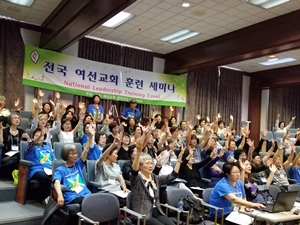
1884년, 오하이오 연회 리벤나 지방의 제일연합감리교회의 여선교회 회원이었던 루시디아 볼드윈은 어둠 속에 살던 한국 여성들에게 복음을 전하기 위해 $88을 지정헌금하였습니다. 가족을 잃고 슬픔과 절망에 빠져 있던 볼드윈은 소망을 잃은 한국여성들의 삶에 대한 이야기를 듣고 남편의 재산을 정리하여 헌금하였습니다. 성경의 밀가루 반죽에 넣어진 누룩처럼, 한국여성을 향한 볼드윈의 헌신은 커다란 사랑이 되어 한국에 전해졌습니다.
1885년, 한국으로 파송을 받은 감리교 여선교사 매리 스크랜튼은 이 헌금으로 이화학당을 시작하였습니다. 한국여성들이 중심이 되어 절망 뿐인 한국이 소망을 회복할 수 있도록 여성들을 교육하였으며 현재의 이화여자대학교로 발전하여 여전히 영향력 있는 수많은 여성리더를 길러내고 있습니다.
루시디아 볼드윈과 메리 스크랜튼의 선교열매인 우리 한인여선교회 회원들, 한인여선교회는 우리가 받은 사랑을 다시 전하고 있습니다.
1993년, 시작된 한인여선교회는 지난 23년간 여선교회원을 세상을 변화시키는 지도자로 양육해 왔으며 2세 여성지도자 양성을 위해서도 힘써왔습니다. 그 결과 여러 여성 목회자, 미국 여선교회 본부 회장 및 이사, 연회 및 지방회 임원 등을 배출해 내었습니다. 또한 국내에서는 전국지도자훈련, 국외에서는 아시아 전도부인 사역을 실시하며 또 다른 선교의 열매를 맺어가고 있습니다.
한인여선교회는 여러분과 함께 또 다른 선교의 열매를 맺어가기를 소망합니다!
2016년, 2년마다 실시되는 전국지도자훈련을 통해 한인여선교회 회원과 2세 여성들은 함께 모여 나누고 배우며 이 땅의 빛과 소금이 될 지도자로 성장합니다. 전국지도자훈련을 위해서는 매번 6만불의 비용이 필요합니다. 이 비용은 한인여선교회 회원 한 사람이 2년 동안 $1,000불을 헌금해준다면 가능합니다. 평신도 지도자로 훈련받은 여선교회 회원은, 1884년도의 우리처럼 어둠속에 살고 있는 전세계 여성과 아동, 청소년들에게 희망을 되찾아 주는 제 2의 볼드윈, 메리 스크랜튼이 될 것입니다. 한인여선교회와 함께 우리의 헌신이 커다란 사랑으로 전해지는 선교의 새역사를 써보지 않으시겠습니까?
($,1,000 헌금 방법)
. 매달 $45 또는 1년에 $500을 2년동안 전국연합회에 우편으로 보내시면 됩니다.
. 전국연합회는 501C의 비영리기관으로 가입되어있어서 세금공제를 받으실 수 있습니다.
. Check 발행은 NNKUMW, 주소는 NNKUMW 57-38 Cloverdale Blvd. Oakland Gardens, NY 11364
후원신청서 다운받기
자세한 문의는 김명래 총무 (mrkim81@gmail.com / 914-473-7401 )에게 해 주시기 바랍니다.
(글:김명래 전도사, 한인여선교회 전국연합회 총무)
* 2020년도 후원자 명단; 안지매 권사 (남가주연합회), 김명래 총무 (뉴욕연합회), 이영희 권사 (남가주연합회), 박연옥 권사 (북가주연합회)

“Easier if we do it together: $1,000 fund raising for NNKUMw”
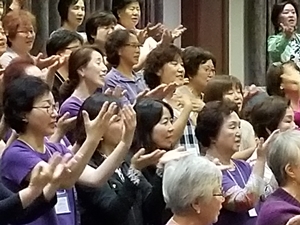 The National Network of the Korean United Methodist Women has held the leadership training every two year since 1993. The last event was held in September in Nashville, Tennessee. The leadership training was made possible by financial support of the Women’s Division and donations from KUMW members. Many leaders who received training are currently working as pastors, officers at the jurisdictional and conference level, and Women’s Division board of directors. Many young Korean American women also participated in the training event. The National Network of the Korean United Methodist Women has held the leadership training every two year since 1993. The last event was held in September in Nashville, Tennessee. The leadership training was made possible by financial support of the Women’s Division and donations from KUMW members. Many leaders who received training are currently working as pastors, officers at the jurisdictional and conference level, and Women’s Division board of directors. Many young Korean American women also participated in the training event.
The NNKUMw is a mission fruit of the UMW. Its dramatic growth has a beautiful story behind the faith in action of one UMW unit. In 1884, Lucidia Baldwin, a member of the Ohio Conference, gave the designated offering of $88.00 to be used to educate Korean women in Korea. She was having a difficult time after deaths of her husband, daughter and grandson all at the same time when she heard about the plights of Korean women. She sold her husband’s property and gave the offering to the Ohio UMW Conference. With this offering, the Woman’s Foreign Missionary Society of the Methodist Episcopal Church (North) was able to send Mary Scranton as its first woman missionary to Korea and started Ewha School for Girls in 1885. She can be compared with the woman in the Bible who made the bread with yeast and shared it with her neighbors. We can say we are offspring’s of Mrs. Baldwin’s mission offering, so we owe her the debt of mission.
The members of the NNKUMw are learning, sharing, and growing together with the leadership training. We are doing our best to bear another mission fruit by the national leadership training and the Bible Women’s Program abroad. To be able to achieve our goals, the leadership training plays a vital role.
Since 2007, the NNKUMw had the leadership training event without the support of the UMW National Office. We need $60,000 for the 2017 national training event. We need your help. If many members of the NNKUMw donate $1,000 over two years, the training event will be possible.
It is easier if we try together!
We can become another Mrs. Baldwin in spreading the good news of Christ to women, children and youth who are still living in the dark. We ask you to write a new chapter of mission history by enabling the national leadership training to be the tool to develop future leaders for Christ.
(Ways to donate $1,000 mission fund)
2020 $ 1,000 Fund Campaign supporters: Janet Ahn (CA), Myungrae Kim Lee (NY Conference Korean UMW Network),YoungHee Lee(CA), Yonok Park (Cal-Nevada Conference)
Monthly donation of $45 or yearly donation of $500 for 2 years.
NNKUMw is 501c a non-profit organization registered with government. Your donation is tax deductible.
Send checks “Payable to NNKUMW, NNKUMw 57-38 Cloverdale Blvd., Oakland Gardens, New York 11364
For more information: e-mail to mrkim81@gmail.com or call 914- 473- 7401
|
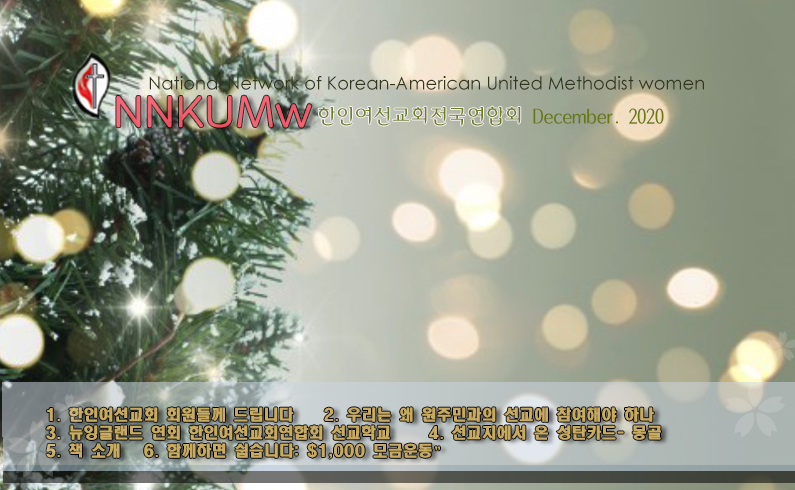






 우리는 왜 미 원주민과의 선교에 참여해야 하나?
우리는 왜 미 원주민과의 선교에 참여해야 하나?
 2020 선교학교(Mission u)를 참석하면서
2020 선교학교(Mission u)를 참석하면서
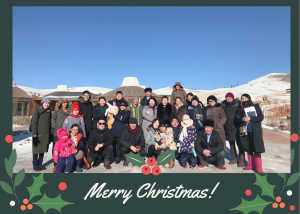
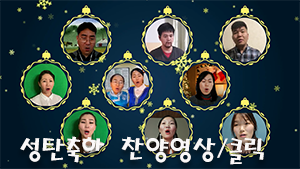
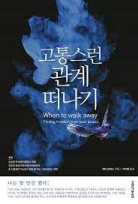 고통스런 관계 떠나기
고통스런 관계 떠나기
 The National Network of the Korean United Methodist Women has held the leadership training every two year since 1993. The last event was held in September in Nashville, Tennessee. The leadership training was made possible by financial support of the Women’s Division and donations from KUMW members. Many leaders who received training are currently working as pastors, officers at the jurisdictional and conference level, and Women’s Division board of directors. Many young Korean American women also participated in the training event.
The National Network of the Korean United Methodist Women has held the leadership training every two year since 1993. The last event was held in September in Nashville, Tennessee. The leadership training was made possible by financial support of the Women’s Division and donations from KUMW members. Many leaders who received training are currently working as pastors, officers at the jurisdictional and conference level, and Women’s Division board of directors. Many young Korean American women also participated in the training event.